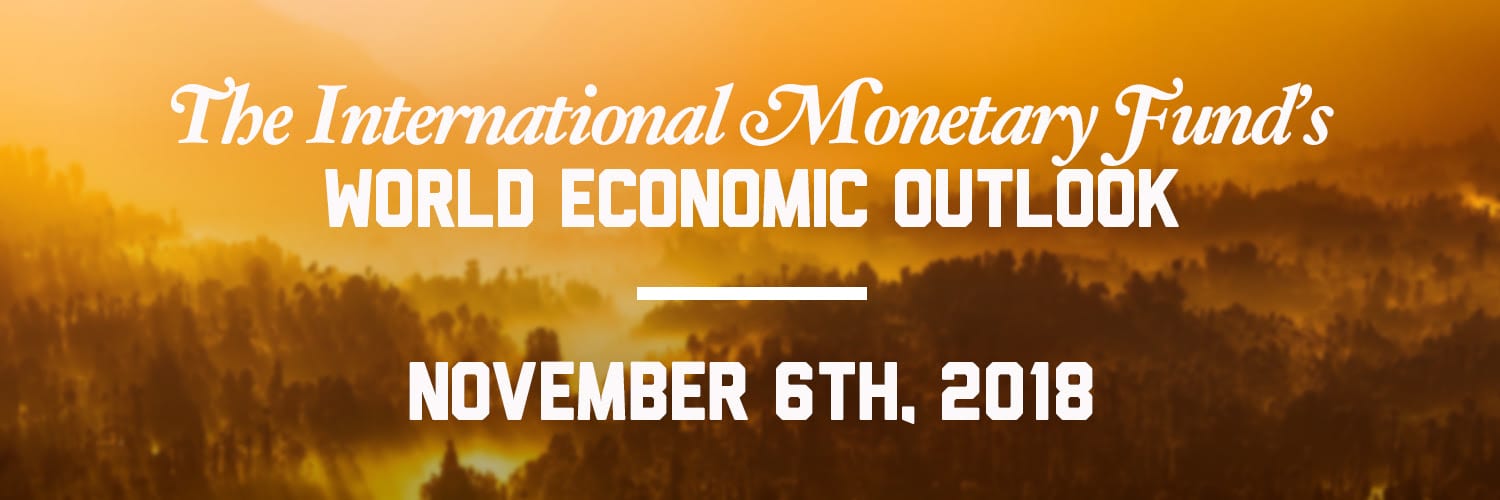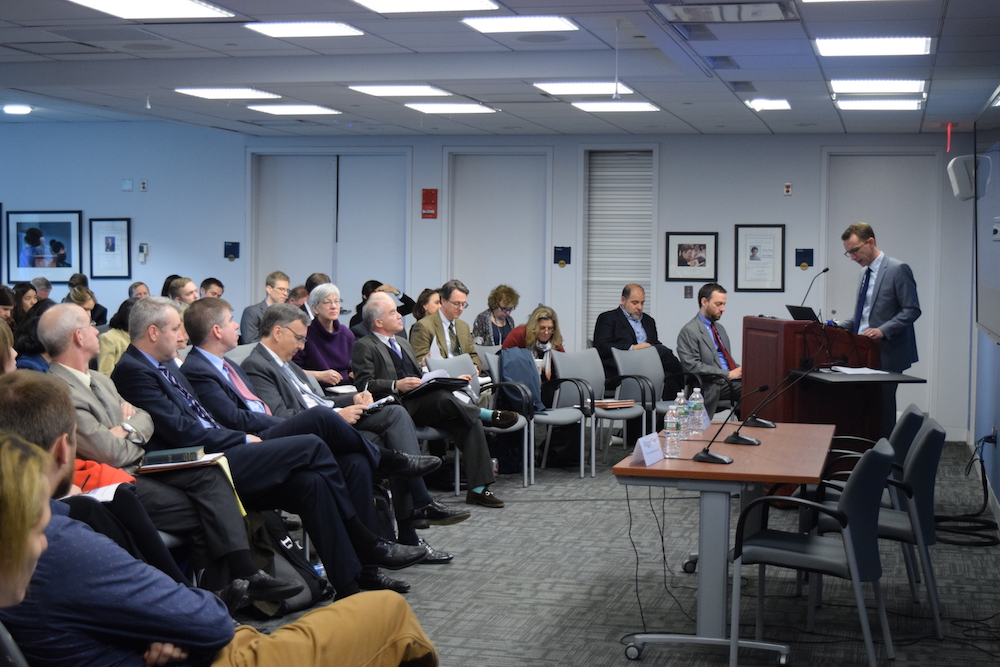Wednesday, March 24, 2021
12:30pm – 2:00pm
via WebEx
Institute for International Economic Policy (IIEP)
At the Elliott School of International Affairs
Wednesday, March 24, 2021
12:30pm – 2:00pm
via WebEx
Friday, March 5, 2021
9:00 a.m. – 10:30 a.m.
via Webex
The Institute for International Economic Policy was pleased to invite you to the 13th annual Conference on China’s Economic Development and U.S.-China Economic Relations. The conference took place as a virtual series. The conference was co-sponsored by the Sigur Center for Asian Studies and the GW Center for International Business Education and Research.
In this event, Professor Meg Rithmire discussed the nature of China’s outward investments. Deborah Brautigam (JHU-SAIS) and Stephen Kaplan (GWU) provided discussant remarks. IIEP Co-Director Jay Shambaugh moderated the discussion.
Global observers are increasingly focused on China’s “state capitalism” and its implications for trading partners and host countries. Disentangling the strategic and commercial motives for Chinese firms abroad is not straightforward, and some of Chinese companies’ global efforts subvert, rather than execute, the Chinese state’s strategic goals. In this talk, based on research on the changing role of the state in China’s economy and the internationalization of Chinese capital over the last decade, I characterize China’s approach to globalization as a series of campaigns and experiments with constant adjustments and focus on the reach and limits of the Chinese party-state.
Meet the Presenter:
 Meg Rithmire is F. Warren MacFarlan associate professor in the Business, Government, and International Economy Unit. Professor Rithmire holds a PhD in Government from Harvard University, and her primary expertise is in the comparative political economy of development with a focus on China and Asia. Her first book, Land Bargains and Chinese Capitalism (Cambridge University Press, 2015), examines the role of land politics, urban governments, and local property rights regimes in the Chinese economic reforms. A new project, for which Meg conducted fieldwork in Asia 2016-2017, investigates the relationship between capital and the state and globalization in Asia. The project focuses on a comparison of China, Malaysia, and Indonesia from the early 1980s to the present. The research has two components; first, examining how governments attempt to discipline business and when those efforts succeed and, second, how business adapts to different methods of state control.
Meg Rithmire is F. Warren MacFarlan associate professor in the Business, Government, and International Economy Unit. Professor Rithmire holds a PhD in Government from Harvard University, and her primary expertise is in the comparative political economy of development with a focus on China and Asia. Her first book, Land Bargains and Chinese Capitalism (Cambridge University Press, 2015), examines the role of land politics, urban governments, and local property rights regimes in the Chinese economic reforms. A new project, for which Meg conducted fieldwork in Asia 2016-2017, investigates the relationship between capital and the state and globalization in Asia. The project focuses on a comparison of China, Malaysia, and Indonesia from the early 1980s to the present. The research has two components; first, examining how governments attempt to discipline business and when those efforts succeed and, second, how business adapts to different methods of state control.
Meet the Discussants:
 Stephen B. Kaplan is an Associate Professor of Political Science and International Affairs. Professor Kaplan’s research and teaching interests focus on the frontiers of international and comparative political economy, where he specializes in the political economy of global finance and development, the rise of China in the Western Hemisphere, and Latin American politics.
Stephen B. Kaplan is an Associate Professor of Political Science and International Affairs. Professor Kaplan’s research and teaching interests focus on the frontiers of international and comparative political economy, where he specializes in the political economy of global finance and development, the rise of China in the Western Hemisphere, and Latin American politics.
 A leading expert on China in Africa, Professor Brautigam is the author of Will Africa Feed China? (Oxford University Press, 2015), The Dragon’s Gift: The Real Story of China in Africa (Oxford University Press, 2010; Chinese version published by Chinese Academy of Social Sciences Press) and Chinese Aid and African Development: Exporting Green Revolution (St. Martin’s Press, 1998). She is also co-editor of Taxation and State-Building: Capacity and Consent(Cambridge University Press, 2008) as well as numerous articles published in academic journals and public affairs media. Professor Brautigam regularly advises international agencies and governments on China-Africa economic engagement.
A leading expert on China in Africa, Professor Brautigam is the author of Will Africa Feed China? (Oxford University Press, 2015), The Dragon’s Gift: The Real Story of China in Africa (Oxford University Press, 2010; Chinese version published by Chinese Academy of Social Sciences Press) and Chinese Aid and African Development: Exporting Green Revolution (St. Martin’s Press, 1998). She is also co-editor of Taxation and State-Building: Capacity and Consent(Cambridge University Press, 2008) as well as numerous articles published in academic journals and public affairs media. Professor Brautigam regularly advises international agencies and governments on China-Africa economic engagement.
 Jay Shambaugh is a Professor of Economics and International Affairs, and Co-Director of the Institute for International Economic Policy at the George Washington University. Professor Shambaugh’s area of research is macroeconomics and international economics. His work includes analysis of the interaction of exchange rate regimes with monetary policy, capital flows, and trade flows as well as studies of international reserves holdings, country balance sheet exchange rate exposure, the cross-country impact of fiscal policy, the crisis in the euro area, and regional growth disparities.
Jay Shambaugh is a Professor of Economics and International Affairs, and Co-Director of the Institute for International Economic Policy at the George Washington University. Professor Shambaugh’s area of research is macroeconomics and international economics. His work includes analysis of the interaction of exchange rate regimes with monetary policy, capital flows, and trade flows as well as studies of international reserves holdings, country balance sheet exchange rate exposure, the cross-country impact of fiscal policy, the crisis in the euro area, and regional growth disparities.
He has had two stints in public service. He served as a Member of the White House Council of Economic Advisors from 2015-2017. Earlier, he served on the staff of the CEA as a Senior Economist for International Economics and then as the Chief Economist. He also spent 3 years as the Director of the Hamilton Project at the Brookings Institution. He is also a Faculty Research Fellow at the NBER and Non-Resident Senior Fellow in Economic Studies at Brookings.
Prior to joining the faculty at George Washington, Shambaugh taught at Georgetown and Dartmouth and was a visiting scholar at the IMF. Shambaugh received his Ph.D. in economics from the University of California at Berkeley, an M.A. from the Fletcher School at Tufts, and a B.A. from Yale University.

Wednesday, February 24, 2021
12:00 pm ET
via Zoom
A Joint Webinar of:
IIEP Rethinking Capitalism and Democracy Series
Thunderbird Finance and Sustainability Series
Finance affects all aspects of our lives, from our economies to social cohesion to the ecological systems that we depend on for our survival. As a result, the implications of how we govern finance are truly fundamental. In the last few years, central banks and financial supervisors have been re assessing the economic and social landscape they face, as well as their broader role in achieving sustainable prosperity. Their responses to the economic fallout from the COVID-19 pandemic have increased the urgency for this review of their objectives, instruments, and institutional arrangements. This webinar examines the opportunities and challenges for financial governance, explores emerging new practices among central banks and financial supervisors, and outlines pathways for greater alignment of the governance of finance with the broader sustainability agenda.
Meet the Speakers:
 Alexander Barkawi is founder and director of the Council on Economic Policies (CEP) – an economic policy think tank for sustainability focused on fiscal, monetary and trade policy. Prior to creating and building CEP, he was the managing director of SAM Indexes and thus responsible for developing the Dow Jones Sustainability Indices into a key reference point for sustainable investing. Alex is a graduate in economics of the University of St. Gallen, Switzerland, where he also earned his doctoral degree. He grew up in Germany and Egypt and today lives in Zurich, Switzerland.
Alexander Barkawi is founder and director of the Council on Economic Policies (CEP) – an economic policy think tank for sustainability focused on fiscal, monetary and trade policy. Prior to creating and building CEP, he was the managing director of SAM Indexes and thus responsible for developing the Dow Jones Sustainability Indices into a key reference point for sustainable investing. Alex is a graduate in economics of the University of St. Gallen, Switzerland, where he also earned his doctoral degree. He grew up in Germany and Egypt and today lives in Zurich, Switzerland.
 Jay Shambaugh’s area of research is macroeconomics and international economics. His work includes analysis of the interaction of exchange rate regimes with monetary policy, capital flows, and trade flows as well as studies of international reserves holdings, country balance sheet exchange rate exposure, the cross- the country impact of fiscal policy, the crisis in the euro area, and regional growth disparities. He has had two stints in public service. He served as a Member of the White House Council of Economic Advisors from 2015-2017. Earlier, he served on the staff of the CEA as a Senior Economist for International Economics and then as the Chief Economist. He also spent 3 years as the Director of the Hamilton Project at the Brookings Institution. He is also a Faculty Research Fellow at the NBER and Non- Resident Senior Fellow In Economic Studies at Brookings. Prior to joining the faculty at George Washington, Shambaugh taught at Georgetown and Dartmouth and was a visiting scholar at the I MF. Shambaugh received his Ph. D. in economics from the University of California at Berkel ey, an M.A. from the Fletcher School at Tufts, and a B.A. from Yale University.
Jay Shambaugh’s area of research is macroeconomics and international economics. His work includes analysis of the interaction of exchange rate regimes with monetary policy, capital flows, and trade flows as well as studies of international reserves holdings, country balance sheet exchange rate exposure, the cross- the country impact of fiscal policy, the crisis in the euro area, and regional growth disparities. He has had two stints in public service. He served as a Member of the White House Council of Economic Advisors from 2015-2017. Earlier, he served on the staff of the CEA as a Senior Economist for International Economics and then as the Chief Economist. He also spent 3 years as the Director of the Hamilton Project at the Brookings Institution. He is also a Faculty Research Fellow at the NBER and Non- Resident Senior Fellow In Economic Studies at Brookings. Prior to joining the faculty at George Washington, Shambaugh taught at Georgetown and Dartmouth and was a visiting scholar at the I MF. Shambaugh received his Ph. D. in economics from the University of California at Berkel ey, an M.A. from the Fletcher School at Tufts, and a B.A. from Yale University.
 Ann Florini is the Clinical Professor at the Thunderbird School of Global Management, Arizona State University, where she directs programs at the Washington, D.C. campus. She was previously Professor of Public Policy at Singapore Management University founding director of the Centre on Asia and Globalisation at the National University of Singapore; and a Senior Fellow at the Brookings Institution. She has spearheaded numerous international initiatives on global governance, energy and climate policy, and cross-sector collaborations including government, civil society, and the private sector. Her many books and articles have addressed governance in China, transparency in governance, transnational civil society networks, and the role of the private sector in public affairs. Dr. Florini received her Ph.D. in Political Science from UCLA and a Masters in Public Affairs from Princeton University.
Ann Florini is the Clinical Professor at the Thunderbird School of Global Management, Arizona State University, where she directs programs at the Washington, D.C. campus. She was previously Professor of Public Policy at Singapore Management University founding director of the Centre on Asia and Globalisation at the National University of Singapore; and a Senior Fellow at the Brookings Institution. She has spearheaded numerous international initiatives on global governance, energy and climate policy, and cross-sector collaborations including government, civil society, and the private sector. Her many books and articles have addressed governance in China, transparency in governance, transnational civil society networks, and the role of the private sector in public affairs. Dr. Florini received her Ph.D. in Political Science from UCLA and a Masters in Public Affairs from Princeton University.
 Sunil Sharma is a Distinguished Visiting Scholar at the Institute for International Economic Policy, Elliott School of International Affairs, The George Washington University, Washington DC, USA, and a Senior Associate at the Council on Economic Policies, Zurich, Switzerland. He was Assistant Director in the IMF’s Research Department from 2015-2018, and the Director of the IMF-Singapore Regional Training Institute (STI) in Singapore from 2006-2015. Before moving to Singapore in 2006, he was Chief of the IMF Institute’s Asian Division in Washington, D.C. Prior to joining the IMF in 1992, he was on the Economics faculty at the University of California, Los Angeles (UCLA). He has a Ph.D. and M.A. in Economics from Cornell University, and his current interests include rethinking capitalism and democracy, systemic hazards, complex systems, the international financial architecture, and the institutional structure and design of financial regulation.
Sunil Sharma is a Distinguished Visiting Scholar at the Institute for International Economic Policy, Elliott School of International Affairs, The George Washington University, Washington DC, USA, and a Senior Associate at the Council on Economic Policies, Zurich, Switzerland. He was Assistant Director in the IMF’s Research Department from 2015-2018, and the Director of the IMF-Singapore Regional Training Institute (STI) in Singapore from 2006-2015. Before moving to Singapore in 2006, he was Chief of the IMF Institute’s Asian Division in Washington, D.C. Prior to joining the IMF in 1992, he was on the Economics faculty at the University of California, Los Angeles (UCLA). He has a Ph.D. and M.A. in Economics from Cornell University, and his current interests include rethinking capitalism and democracy, systemic hazards, complex systems, the international financial architecture, and the institutional structure and design of financial regulation.
 James E. Foster is the Oliver T. Carr, Jr. Professor of International Affairs, Professor of Economics, and Co-Director of the Institute for International Economic Policy at the George Washington University. He is also a Research Associate at the Oxford Poverty and Human Development Initiative at Oxford University. Professor Foster’s research focuses on welfare economics — using economic tools to evaluate and enhance the wellbeing of people. His work underlies many well-known social indices including the global Multidimensional Poverty Index (MPI) published annually by the UNDP in the Human Development Report, dozens of national MPIs used to guide domestic policy against poverty, the Women’s Empowerment in Agriculture Index (WEAI) at USAID, the Gross National Happiness Index of Bhutan, the Better Jobs Index of the InterAmerican Development Bank, and the Statistical Performance Index of the World Bank. Prof. Foster received his PhD in Economics from Cornell University and has a Doctorate Honoris Causa from Universidad Autonoma del Estado Hidalgo (Mexico).
James E. Foster is the Oliver T. Carr, Jr. Professor of International Affairs, Professor of Economics, and Co-Director of the Institute for International Economic Policy at the George Washington University. He is also a Research Associate at the Oxford Poverty and Human Development Initiative at Oxford University. Professor Foster’s research focuses on welfare economics — using economic tools to evaluate and enhance the wellbeing of people. His work underlies many well-known social indices including the global Multidimensional Poverty Index (MPI) published annually by the UNDP in the Human Development Report, dozens of national MPIs used to guide domestic policy against poverty, the Women’s Empowerment in Agriculture Index (WEAI) at USAID, the Gross National Happiness Index of Bhutan, the Better Jobs Index of the InterAmerican Development Bank, and the Statistical Performance Index of the World Bank. Prof. Foster received his PhD in Economics from Cornell University and has a Doctorate Honoris Causa from Universidad Autonoma del Estado Hidalgo (Mexico).
Thursday, June 11, 2020
1:00 pm – 2:30 pm EDT
via Webex
Please join the Institute for International Economic Policy for a virtual discussion of the International Monetary Fund’s April 2020 World Economic Outlook.
Agenda
1:00 – 1:05 p.m.: Welcoming Remarks
James Foster, George Washington University
1:05 – 1:35 p.m.: Chapter 1: Global Prospects and Policies
Presenter: Gian Maria Milesi-Ferretti, International Monetary Fund
Discussant: Jason Furman, Harvard Kennedy School
1:40 – 2:05 p.m.: Chapter 2: Countering Future Recessions in Advanced Economies: Cyclical Polices in an Era of Low Rates and High Debt
Presenter: Wenjie Chen, International Monetary Fund
Discussant: Jay Shambaugh, George Washington University & Hamilton Project
2:05 – 2:30 p.m.: Chapter 3: Dampening Global Financial Shocks in Emerging Markets: Can Macroprudential Regulation Help?
Presenters: Katharina Bergant, International Monetary Fund
Niels-Jakob Hansen, International Monetary Fund
Discussant: Sunil Sharma, George Washington University
2:30 p.m.: Concluding Remarks

We are delighted to invite you to the International Monetary Fund’s 2018 World Economic Outlook at the George Washington University. The talk will consist of three sections, starting with an overview of global prospects and policies and then moving onto a discussion of the global recovery 10 years after the global financial crisis and challenges for monetary policy in emerging economies.
Tuesday, November 6, 2018
9:30 a.m. – 12:30 p.m.
The Commons, 6th Floor
Elliott School of International Affairs
1957 E Street, NW
Washington, DC 20052
9:30 – 9:45 a.m. Opening Remarks
9:45 – 10:15 a.m. Chapter 1: Global Prospects and Policies
10:15 – 10:30 a.m. Coffee Break
10:30 – 11:15 a.m. Chapter 2: The Global Recovery 10 Years after the 2008 Financial Meltdown
11:15 – 11:30 a.m. Coffee Break
11:30 – 12:15 p.m. Chapter 3: Challenges for Monetary Policy in Emerging Economies as Global Financial Conditions Normalize
12:15 p.m. Concluding remarks
Global growth for 2018–19 is projected to remain steady at its 2017 level, but its pace is less vigorous than projected in April and it has become less balanced. Downside risks to global growth have risen in the past six months and the potential for upside surprises has receded. Global growth is projected at 3.7 percent for 2018–19—0.2 percentage point lower for both years than forecast in April. The downward revision reflects surprises that suppressed activity in early 2018 in some major advanced economies, the negative effects of the trade measures implemented or approved between April and mid-September, as well as a weaker outlook for some key emerging market and developing economies arising from country-specific factors, tighter financial conditions, geopolitical tensions, and higher oil import bills.
This chapter takes stock of the global economic recovery a decade after the 2008 financial crisis. Output losses after the crisis appear to be persistent, irrespective of whether a country suffered a banking crisis in 2007–08. Sluggish investment was a key channel through which these losses registered, accompanied by long-lasting capital and total factor productivity shortfalls relative to precrisis trends. Policy choices preceding the crisis and in its immediate aftermath influenced postcrisis variation in output. Underscoring the importance of macroprudential policies and effective supervision, countries with greater financial vulnerabilities in the precrisis years suffered larger output losses after the crisis. Countries with stronger precrisis fiscal positions and those with more flexible exchange rate regimes experienced smaller losses. Unprecedented and exceptional policy actions taken after the crisis helped mitigate countries’ postcrisis output losses.
Inflation in emerging market and developing economies since the mid-2000s has, on average, been low and stable. This chapter investigates whether these recent gains in inflation performance are sustainable as global financial conditions normalize. The findings are as follows: first, despite the overall stability, sizable heterogeneity in inflation performance and in variability of longer-term inflation expectations remains among emerging markets. Second, changes in longer-term inflation expectations are the main determinant of inflation, while external conditions play a more limited role, suggesting that domestic, not global, factors are the main contributor to the recent gains in inflation performance. Third, further improvements in the extent of anchoring of inflation expectations can significantly improve economic resilience to adverse external shocks in emerging markets. Anchoring reduces inflation persistence and limits the pass-through of currency depreciations to domestic prices, allowing monetary policy to focus more on smoothing fluctuations in output.
This project argues that presidents organize decision-making to respond to economic crises not driven by personality or institutional constraints, but rather by cognitive contexts. The higher the frequency of crises, the more inclined the president to use hierarchical, rather than collegial, decision-making processes. The argument is tested comparing cases in the US and Argentina.
Alejandro Bonvecchi holds a BA in Sociology from the University of Buenos Aires and a Ph.D. in Government from the University of Essex. He is an Assistant Professor at the Torcuato Di Tella University in Buenos Aires and an Adjunct Research of the National Council for Scientific and Technical Research in Argentina, where he works on presidential and legislative politics and the political economy of economic policymaking. He has published four books, and his work has appeared in Presidential Studies Quarterly, Legislative Studies Quarterly, Publius, Latin American Politics and Society, and Journal of Politics in Latin America.
Stephen B. Kaplan is an Assistant Professor of Political Science and International Affairs. Professor Kaplan’s research and teaching interests focus on the frontiers of international and comparative political economy, where he specializes in the political economy of global finance and development, the rise of China in the Western Hemisphere, and Latin American politics. Professor Kaplan joined the GWU faculty in the fall of 2010 after completing a postdoctoral research fellowship at the Niehaus Center for Globalization and Governance at Princeton University and his Ph.D at Yale University. While at Yale, Kaplan also worked as a researcher for former Mexican President Ernesto Zedillo at the Yale Center for the Study of Globalization. Prior to his doctoral studies, Professor Kaplan was a senior economic analyst at the Federal Reserve Bank of New York, writing extensively on developing country economics, global financial market developments, and emerging market crises from 1998 to 2003. He received his B.A in International Relations and Economics from Tufts University, and an M.S in International Economic Development from Georgetown University.
Jay Shambaugh is a professor of economics and international affairs at the George Washington University. He is the director of the Institute for International Economic Policy. Professor Shambaugh’s area of research is macroeconomics and international economics. His work includes analysis of the interaction of exchange rate regimes with monetary policy, capital flows, and trade flows as well as studies of international reserves holdings, country balance sheet exchange rate exposure, the cross-country impact of fiscal policy, and the current crisis in the euro area. In addition to his book, Exchange Rate Regimes in the Modern Era (MIT Press, 2009), Shambaugh has published in The American Economic Review, The Quarterly Journal of Economics, and other leading journals. Prior to joining the faculty at George Washington, Shambaugh taught at Georgetown and Dartmouth and served as first Senior Economist for International Economics and then Chief Economist at the White House Council of Economic Advisers. He is also a Faculty Research Fellow at the NBER and a visiting scholar at the IMF. Shambaugh received his Ph.D. in economics from the University of California at Berkeley, an M.A. from the Fletcher School at Tufts, and a B.A. from Yale University.

President Trump has promised a markedly new direction in U.S. trade policy through tweets, appointments, and executive orders. Regardless of these first steps and initial press reports, substantial questions remain about whether some of the actions in fact can be adopted within existing legislative and constitutional constraints. In other areas, President Trump’s authority to pursue radically different policies likely are well-established. George Washington’s Institute for International Economic Policy hosted a full day conference to examine what President Trump can, and cannot, do on trade policy without new congressional authorization. Participants will hear from panels that will include a team of two leading lawyers and economists with substantial first-hand trade policy experience. This conference provided audience members with important perspectives on the limits of President Trump’s emerging trade policy.
The President has substantial leeway for initiating various trade remedy actions (antidumping, countervailing duty, and safeguards). U.S. trade law practice and procedure may limit the scope of imposing duties under these provisions.
The U.S. Treasury may determine that a country manipulates its currency but only under certain statutory conditions. Would China qualify under those provisions? What consequences might it face if China is declared a “currency manipulator”?
U.S. trade agreements such as NAFTA allow for either Party to announce a withdrawal with six months’ notice. Can President Trump do so without congressional approval? What would be the impact on U.S. trade and investment flows if he were to follow through with such threats?
President Trump has suggested imposing 35 percent tariffs on individual U.S. firms that offshore manufacturing jobs. Can the Administration single out individual companies in this way? How might such threats increase uncertainty on inward and outward U.S. foreign investment?
An aggressive new U.S. trade policy may result in formal disputes with WTO members. What are the most likely cases that might arise? How might the U.S. economy be affected if the WTO rules in favor of those who contest new U.S. approaches in trade policy?
February 2015
by Michael W. Klein and Jay C. Shambaugh (The George Washington University)
February 2015
by Agustín S. Bénétrix (Trinity College Dublin), Philip R. Lane (Trinity College Dublin Trinity College Dublin and CEPR), and Jay C. Shambaugh (The George Washington University and NBER)
This conference hosted by the World Bank, George Washington University (Institute for International Economic Policy), and the Growth Dialogue brings together academics and development practitioners to present and discuss the challenges of urbanization in developing countries.
For more information about this conference, click here.
Lindner Commons, Suite 602
Elliott School of International Affairs
1957 E St. NW, Washington, D.C. 20052
The U.S.-China relationship is now second to none in importance for international economic relations and policy and accordingly is a major focus of IIEP. The centerpiece of this initiative is our annual Conference on China’s Economic Development and U.S.-China Economic and Political Relations (or the “G2 at GW”), which as become one of the premier events of its type.
Moderated by Michael Moore
Moderated by Maggie Chen
Moderated by Jay Shambaugh
Moderated by Stephen Smith
An archive of all previous Annual Conferences on China’s Economic Development and U.S.-China Economic Relations is available here.
For more information, please contact Kyle Renner at iiep@gwu.edu or 202-994-5320.
Co-sponsored by: